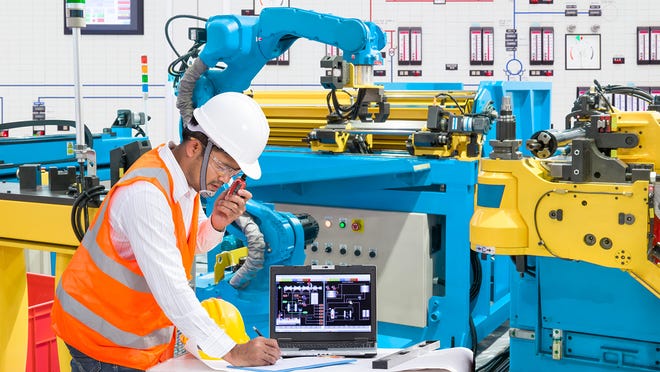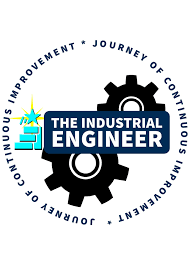
You need to be able to anticipate what you can expect when you apply for a Supply Chain Management Certificate. This degree program is designed for working professionals and emphasizes case materials, simulations, and experiential learning. During your coursework, industry experts as well as peers in the supply-chain field will be available to you. Your final project (or capstone) will see you working with a business in order to solve a particular problem. If you're unsure of whether this degree is right for you, read on to learn more about how to find the best program for you.
Coursework
The Coursework for Supply Chain Management Certificate covers four courses. It will cover the basic concepts of the field. This program covers topics including customer demand forecasting. Master production scheduling. inventory management. capacity planning. and production activity control. This program also includes the essential information required to pass the supply chain management certification exam. The curriculum will teach students how to save money and improve performance. The curriculum will also give you a global perspective on supply chain management and its key drivers.
Students must pass the certification exam and take the courses required. The American Production and Inventory Control Society, the industry standard, administers the exam. APICS certification is desirable by companies that work in the manufacturing or supply chain management industries. This course requires 12 semester credits. To complete the degree, students must submit a resume to the Grainger Center and interview with the faculty.

Prerequisites
It is necessary to have the right prerequisites in order to pursue a certificate of supply chain management. This certificate is suitable for anyone, regardless of whether you are an experienced supply-chain management professional or a recent graduate from a general manager program. This certificate prepares students to take a certification examination. You will also learn key performance indicators like customer satisfaction and environmental impact.
The requirements for this certificate depend on the place you will be completing the program. It's recommended that you have an undergraduate degree in business or supply chain management, although individuals without a SCM background are welcome to apply. It's best to talk with your advisor if you are unsure if a particular degree is necessary. While the prerequisite courses will give you a solid foundation for supply chain management, you may be interested in electives to personalize your education.
Certificates
A supply chain management certification is a great way for you to advance your career. Most supply chain certifications have a real-world basis. These certifications can be useful and practical as well as allowing you to display your expertise. These certifications are ideal for supply chain students in their early stages of careers, who still need to improve their skills. Here are some examples supply chain certifications. Learn more. We've outlined some of the more common certifications and what they mean for you.
ASCM credential is the Certified in Production and Inventory Management certification (CPIM). It demonstrates that a supply manager is well-versed in inventory management and operations. The certification requires that you pass two exams in three years. CPIM Part 1 focuses primarily upon fundamentals of supply chains management. CPIM Part 2 focuses mainly on scheduling, resources, as well as the overall operation and management of a supply system. You should remember that the CPIM certification is contingent on the candidate earning 75 professional development points.

Internships
A supply chain management certificate internship can be a great place to start for those interested in working in a related industry. A supply chain cannot be done in a vacuum like other jobs. Each business has its own unique set and capabilities. The same is true for a trucking company's supply chain. Internships in supply chains give students practical experience, as well as foundational knowledge.
Students who are interested in obtaining supply chain management certificate internships must not neglect their studies. A high GPA is an indicator of hard work, focus, determination, and smarts. A strong resume and excellent interpersonal skills will increase your chances of getting hired. A college advisor can help with polishing a resume. It is important to realize that translating from one language into another can be difficult. It is better to get help from a career center as well as a college advisor.
FAQ
How important is automation in manufacturing?
Not only are service providers and manufacturers important, but so is automation. It allows them provide faster and more efficient services. It reduces human errors and improves productivity, which in turn helps them lower their costs.
What is it like to manage a logistics company?
To run a successful logistics company, you need a lot knowledge and skills. Effective communication skills are necessary to work with suppliers and clients. You will need to know how to interpret data and draw conclusions. You will need to be able handle pressure well and work in stressful situations. In order to innovate and create new ways to improve efficiency, creativity is essential. You must be a strong leader to motivate others and direct them to achieve organizational goals.
You should also be organized and efficient to meet tight deadlines.
Why is logistics important for manufacturing?
Logistics is an integral part of every business. They can help you achieve great success by helping you manage product flow from raw material to finished goods.
Logistics plays a significant role in reducing cost and increasing efficiency.
Is there anything we should know about Manufacturing Processes prior to learning about Logistics.
No. No. Knowing about manufacturing processes will help you understand how logistics works.
What is the role of a production manager?
Production planners ensure that all project aspects are completed on time, within budget and within the scope. They make sure that the product and services meet client expectations.
What does the term manufacturing industries mean?
Manufacturing Industries refers to businesses that manufacture products. These products are sold to consumers. To accomplish this goal, these companies employ a range of processes including distribution, sales, management, and production. These companies produce goods using raw materials and other equipment. This includes all types of manufactured goods, including food items, clothing, building supplies, furniture, toys, electronics, tools, machinery, vehicles, pharmaceuticals, medical devices, chemicals, and many others.
What are the responsibilities of a logistic manager?
A logistics manager ensures that all goods are delivered on time and without damage. This is done using his/her knowledge of the company's products. He/she must also ensure sufficient stock to meet the demand.
Statistics
- You can multiply the result by 100 to get the total percent of monthly overhead. (investopedia.com)
- It's estimated that 10.8% of the U.S. GDP in 2020 was contributed to manufacturing. (investopedia.com)
- In the United States, for example, manufacturing makes up 15% of the economic output. (twi-global.com)
- In 2021, an estimated 12.1 million Americans work in the manufacturing sector.6 (investopedia.com)
- Many factories witnessed a 30% increase in output due to the shift to electric motors. (en.wikipedia.org)
External Links
How To
How to use lean manufacturing in the production of goods
Lean manufacturing refers to a method of managing that seeks to improve efficiency and decrease waste. It was developed in Japan between 1970 and 1980 by Taiichi Ohno. TPS founder Kanji Tyoda gave him the Toyota Production System, or TPS award. Michael L. Watkins published the first book on lean manufacturing in 1990.
Lean manufacturing refers to a set of principles that improve the quality, speed and costs of products and services. It emphasizes the elimination and minimization of waste in the value stream. Lean manufacturing is also known as just in time (JIT), zero defect total productive maintenance(TPM), and five-star (S). Lean manufacturing seeks to eliminate non-value added activities, such as inspection, work, waiting, and rework.
In addition to improving product quality and reducing costs, lean manufacturing helps companies achieve their goals faster and reduces employee turnover. Lean manufacturing can be used to manage all aspects of the value chain. Customers, suppliers, distributors, retailers and employees are all included. Lean manufacturing can be found in many industries. Toyota's philosophy is the foundation of its success in automotives, electronics and appliances, healthcare, chemical engineers, aerospace, paper and food, among other industries.
Five basic principles of Lean Manufacturing are included in lean manufacturing
-
Define Value: Identify the social value of your business and what sets you apart.
-
Reduce waste - Stop any activity that isn't adding value to the supply chains.
-
Create Flow. Ensure that your work is uninterrupted and flows seamlessly.
-
Standardize & simplify - Make processes consistent and repeatable.
-
Building Relationships – Establish personal relationships with both external and internal stakeholders.
Lean manufacturing, although not new, has seen renewed interest in the economic sector since 2008. Many businesses are now using lean manufacturing to improve their competitiveness. Many economists believe lean manufacturing will play a major role in economic recovery.
Lean manufacturing is now becoming a common practice in the automotive industry, with many benefits. These include improved customer satisfaction, reduced inventory levels, lower operating costs, increased productivity, and better overall safety.
You can apply Lean Manufacturing to virtually any aspect of your organization. This is because it ensures efficiency and effectiveness in all stages of the value chain.
There are three main types of lean manufacturing:
-
Just-in Time Manufacturing: This lean manufacturing method is commonly called "pull systems." JIT means that components are assembled at the time of use and not manufactured in advance. This approach reduces lead time, increases availability and reduces inventory.
-
Zero Defects Manufacturing (ZDM): ZDM focuses on ensuring that no defective units leave the manufacturing facility. It is better to repair a part than have it removed from the production line if it needs to be fixed. This applies to finished products, which may need minor repairs before they are shipped.
-
Continuous Improvement (CI): CI aims to improve the efficiency of operations by continuously identifying problems and making changes in order to eliminate or minimize waste. Continuous Improvement (CI) involves continuous improvement in processes, people, tools, and infrastructure.